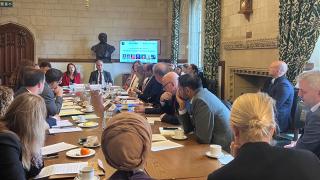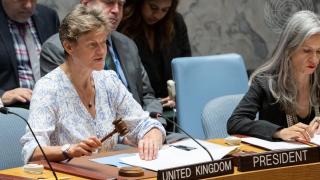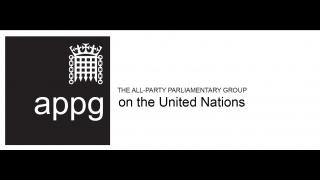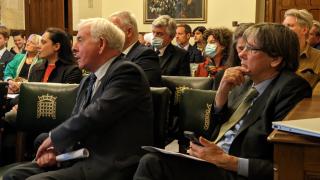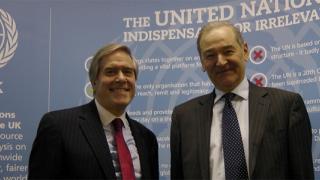
UNA-UK was delighted to welcome Edward Luck, Special Adviser to the UN Secretary-General on the responsibility to protect, to its offices in London on 13 December.
Since its introduction at the 2005 World Summit, the ‘responsibility to protect’ principle (R2P) has been refined and clarified by the work of Dr Luck who has been instrumental in its theoretical development as well as helping to create a path for putting the principle into practice.
Dr Luck visited London to address the UN All-Party Parliamentary Group (UN APPG) on the importance of R2P and its role in current and future international affairs. In the meeting, which was hosted by Lord Hannay, Chair of the UN APPG, Dr Luck described this year’s events in Libya as a watershed for RtoP. Despite controversies surrounding international action in Libya, he said that the implementation of R2P had offered real hope and a promising opportunity to the people of that country.
Dr Luck also gave the keynote speech at a conference in Oxford organised by the Oxford University Institute for Ethics, Law and Armed Conflict, with support from UNA-UK. He described civil society as having a key role to play in the development of the responsibility to protect, and that UNA-UK in particular had an important part to play in promoting the principle.
In an exclusive interview with UNA-UK, Dr Luck explained that whilst R2P is receiving increasingly widespread recognition within the UN, academia and in parliaments across the world, there is an ongoing challenge to educate the public.
“We have to keep working on the educational side, and that’s an area where UNA-UK can be enormously helpful: explaining to the public and the media what R2P is about and, more importantly, what it’s not about. R2P is not humanitarian intervention; it’s not the old idea of sending in the marines in every situation…it’s about recognising that these kinds of crimes are a blot on the history of the 21st century and are simply not acceptable anymore”

